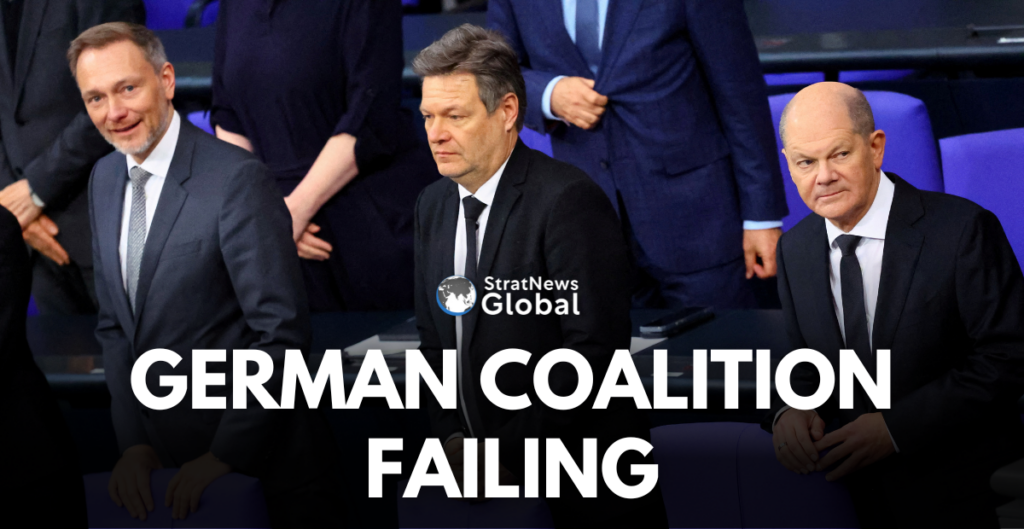Odd One Out
The FDP was always the odd one out in Scholz’s unwieldy coalition which nonetheless united in its early years over an external threat: Russia’s invasion of Ukraine and the subsequent energy crisis.
Now, though, the focus has shifted to reviving an economy that is set to contract for the second year in a row, bringing the differences between the fiscally hawkish FDP and more spendthrift SPD and Greens to the forefront.
Whether or not they can get the 2025 budget passed in parliament will be a litmus test for the coalition’s viability, said one high-ranking FDP source. The budgetary committee meets on Nov. 14.
“Before that decisive meeting, the government needs to come up with a common understanding, also in light of the recent tax estimates, on the next steps in economic and financial policy,” the source said. “The next weeks will be decisive.”
The projected shortfall in Germany’s draft 2025 budget widened to 13.5 billion euros ($14.58 billion) from 12 billion euros as a result of those estimates, Lindner said last week.
‘No Trust’
An FDP government official said a third round of negotiations between Scholz, Habeck and Lindner would likely be needed.
“The mood is not good at all, there is no trust anymore,” the official said.
The most likely scenario is still that the coalition holds together until the next federal election on Sept. 28 given hope that its policies might start yielding fruit and the German proclivity for stability, analysts and officials say.
However, the SPD’s new general secretary, Matthias Miersch, this month raised the possibility of a minority government if the FDP or the Greens were to exit the coalition early.
“If the budget has been approved ahead of time that wouldn’t be a problem,” he said.
Impact Of U.S. Elections
Given the government’s lack of popularity, however, it would likely struggle to resist pressure for new elections. Such a move would require the chancellor to first call a vote of no confidence so the president could then dissolve parliament.
One particular external event could yet cause the coalition to rally together, namely the potential re-election on Nov. 5 of former U.S. president Donald Trump, who has threatened to impose high tariffs on imports and condition support for NATO allies.
“The world’s third largest economy could not risk being without leadership at such a time,” the first government official said. “Everyone knows that, even Lindner.”
(with inputs from Reuters)
Source link : https://stratnewsglobal.com/europe/germanys-ideologically-disparate-coalition-falling-apart/
Author :
Publish date : 2024-10-29 09:53:00
Copyright for syndicated content belongs to the linked Source.
